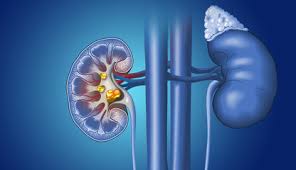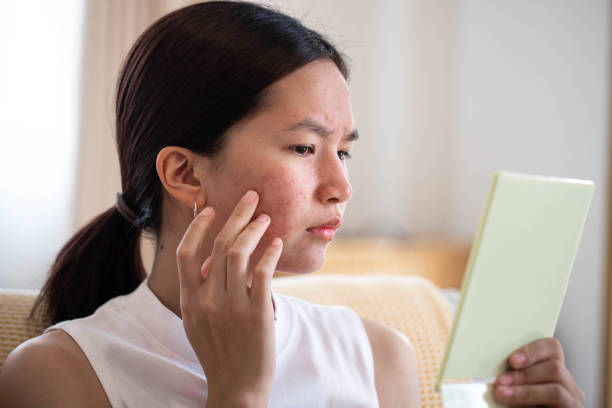Kidney stones, which are tiny, hard deposits that occur in the kidneys, can be brutally painful. The discomfort occurs as these stones pass through the urinary tract, producing pain and, in rare cases, problems. In this thorough guide, we’ll look at a variety of techniques to assist you manage and reduce the discomfort associated with kidney stones, from instant relief to long-term prevention.
Kidney Stones: An Overview
What exactly are kidney stones?
Kidney stones, also known as renal calculi, are solid masses composed of crystals. They can form in the kidneys when chemicals such as calcium, oxalate, and phosphorus become too concentrated in the urine, producing a favorable environment for stone formation.
Kidney Stone Causes
A variety of variables contribute to the formation of kidney stones. Common causes include dehydration, certain medical disorders, a high salt or oxalate-rich diet, and a family history of kidney stones. Understanding these elements is critical for developing an effective pain treatment and prevention strategy.
Recognizing the Signs
Typical Symptoms
Kidney stones can cause a variety of symptoms, including acute pain in the back or side, blood in the urine, frequent urination, and discomfort when urinating. Early detection of these indications is critical for timely response.
When Should You Seek Medical Attention?
While some kidney stones pass on their own, others necessitate prompt medical intervention. Persistent discomfort, fever, chills, trouble urinating, and symptoms of infection necessitate rapid medical attention.
Immediate Relief Procedures
Hydration
Staying hydrated is essential for preventing and treating kidney stone discomfort. Increased fluid consumption aids in the removal of minerals and pollutants, lowering the concentration of chemicals that lead to stone formation.
Medications for Pain
Over-the-counter pain relievers such as ibuprofen or acetaminophen can help control kidney stone discomfort. However, it is critical to speak with a healthcare expert to verify optimum dose and to address any potential contraindications.
Compress Warmth
A warm compress applied to the afflicted area might help relax the muscles and relieve discomfort. This is very helpful when dealing with muscular spasms caused by kidney stone passage.
Using Aspadol 200mg to Relieve Pain
In severe situations of pain, your doctor may offer prescription drugs such as Aspadol 200mg, which can provide significant relief. For best results, adhere to your healthcare professional’s dose and usage recommendations.
Dietary modifications
Diet Low in Oxalate
A low-oxalate diet may be useful for people who are prone to calcium oxalate stones. To lower the chance of stone development, restrict your intake of high-oxalate foods including beets, chocolate, and nuts.
Sodium Decrease
High salt consumption might lead to the production of kidney stones. Reduced salt consumption aids in the management of stone-related discomfort and reduces the incidence of recurring stones.
Calcium Consumption
Contrary to common opinion, high calcium intake can actually reduce the incidence of calcium oxalate stones by preventing oxalate absorption in the intestines. It is critical to balance calcium intake through dietary sources.
Long-Term Prevention Methods
Keep Hydrated
Maintaining proper hydration is a long-term preventative approach as well as an urgent relief therapy. Drink lots of water throughout the day to minimize the mineral content in the urine.
Dietary Alterations
It is critical to consult with a healthcare practitioner or a dietician before making dietary changes. Changing your diet to avoid the sort of kidney stones you’re prone to can greatly lower your chance of recurrence.
Exercise on a regular basis
Regular physical exercise improves general health and can help avoid obesity, which is a risk factor for kidney stones. Aim for at least 150 minutes per week of moderate-intensity exercise.
Herbal Treatments
Piedra Chanca
Some believe that chanca piedra, a herb known for its traditional use in treating kidney stones, can help break down stones and reduce pain. However, scientific evidence is limited, and it is best to consult with a healthcare professional before using herbal remedies.
Tea made from horsetail
Horsetail tea is another herbal remedy that may help flush out kidney stones due to its diuretic properties. Before incorporating it into your routine, as with any herbal remedy, you should consult with a healthcare provider.
When Medical Intervention Is Required
Extracorporeal Shock Wave Lithotripsy (ESWL) is a type of shock wave therapy.
ESWL is a non-invasive procedure that employs shock waves to shatter kidney stones into smaller pieces, allowing them to pass more easily. It is appropriate for smaller stones and is frequently performed as an outpatient procedure.
Ureteroscopy
When stones become lodged in the ureter, a thin tube equipped with a camera is inserted through the urethra and bladder in order to remove or break up the stones. Ureteroscopy is the medical term for this procedure.
Surgical Procedures
Surgery may be required in rare cases where the stones are too large to pass or are causing significant complications. Depending on the circumstances, open surgery or minimally invasive techniques may be used.
Coping Strategies for Emotional Well-being
Dealing with the pain and uncertainty of kidney stones can be taxing on one’s emotional state. It is critical to employ coping strategies such as mindfulness, relaxation techniques, and seeking support from friends or a mental health professional.
Stress Reduction
Chronic stress can aggravate kidney stone symptoms. Stress management techniques such as meditation, deep breathing exercises, and engaging in hobbies can all contribute to overall well-being.
To summarize: A Comprehensive Approach
Relieving and preventing kidney stone pain necessitates a multifaceted approach that includes immediate relief measures, dietary changes, long-term prevention strategies, and, when necessary, medical intervention. Individuals can navigate the challenges of kidney stones with greater ease and reduce the risk of recurrence by understanding the underlying causes and implementing a multifaceted plan.
Visit: Buynetmeds





